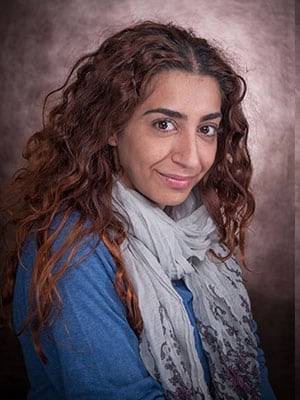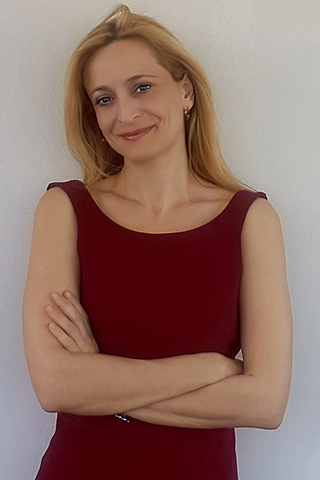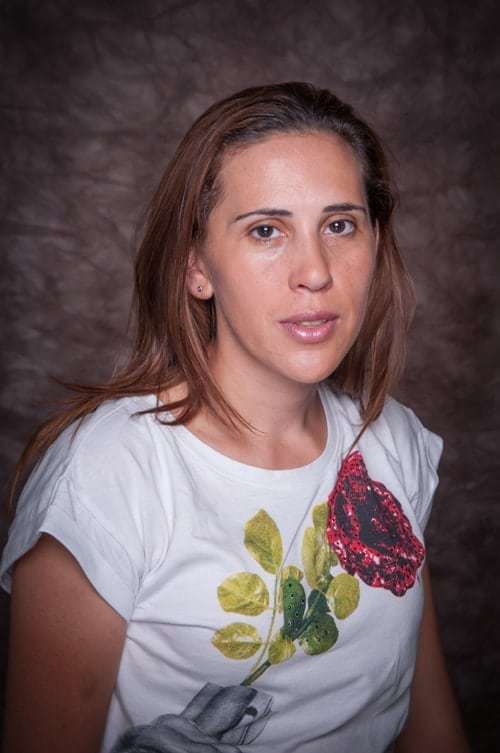Graphic and Digital Design
(BA, 4 Years)
Duration
4 years
Qualification Awarded
Bachelor of Arts in Graphic and Digital Design
Level of Qualification
Bachelor Degree (1st Cycle)
Language of Instruction
English
Mode of Study
Full-time or Part-time
Minimum ECTs Credits
240
Request Information
Graphic and Digital Design (BA, 4 Years)
| Duration | 4 years |
| Qualification Awarded | Bachelor of Arts in Graphic and Digital Design |
| Level of Qualification | Bachelor Degree (1st Cycle) |
| Language of Instruction | English |
| Mode of Study | Full-time and Part-time |
| Minimum ECTS Credits | 240 |
Request Information
Profile of the Programme
The graphic design field is developing rapidly with the help of digital tools; continuous technological advancements create new challenges and opportunities for the modern graphic designer.
Graphic language, through images and texts, largely determines the everyday lives of people all over the world. Newspapers and textbooks, product packaging and promotional posters, signage in malls and roads, websites and mobile applications are just a few examples of visual communication design.
The programme aims to develop students’ communication, critical thinking and creative skills, to cultivate their aesthetic criteria, and help them establish a strong visual vocabulary to successfully address and solve everyday design problems.
Career Prospects
The programme is one of the longest established graphic design programmes in Cyprus, whose graduates are now working all over the world. It provides excellent career opportunities for those who wish to become professional graphic designers, typographers, illustrators, and digital designers in areas including print and electronic publishing (books, magazines, newspapers), information design, branding and advertising, packaging, and print production management, as well as in every sector with a need for digital and online visual design applications. Our graduates also work as designers for museums, cultural organisations and creative media or go into research work and teaching.
Academic Admission
The minimum admission requirement to an undergraduate programme of study is a recognized High School Leaving Certificate (HSLC) or equivalent internationally recognized qualification(s). Students with a lower HSLC grade than 7.5/10 or 15/20 or equivalent depending on the grading system of the country issuing the HSLC are provided with extra academic guidance and monitoring during the first year of their studies.
In addition to the above all applicants are expected to submit a portfolio of art/design/multimedia, ideally in both electronic and physical form.
Portfolios will be submitted by the applicant during an interview, which may be conducted online, scheduled by the University of Nicosia and will be assessed by the Department’s admissions panel. The interview takes the form of a discussion around the applicant’s range of skills and interests, focusing on the portfolio of work in graphic and/or multimedia design, the arts or related areas.
The interview and portfolio review is a two-way process and assesses students’ skills and interests; students are given the opportunity to ask questions about the programme and the Department and to have a look at the facilities.
English Language Proficiency
The list below provides the minimum English Language Requirements (ELR) for enrollment to the programme of study. Students who do not possess any of the qualifications or stipulated grades listed below and hold IELTS with 4.5 and above, are required to take UNIC’s NEPTON English Placement Test (with no charge) and will receive English Language support classes.
- TOEFL – 525 and above
- Computer-based TOEFL – 193 and above
- Internet-based TOEFL – 80 and above
- IELTS – 6 and above
- Cambridge Exams [First Certificate] – B and above
- Cambridge Exams [Proficiency Certificate – C and above
- GCSE English Language “O” Level – C and above
- Michigan Examination of Proficiency in English (CaMLA) – Pass
- Pearson PTE General – Level 3 and above
- KPG (The Greek Foreign Language Examinations for the State Certificate of Language Proficiency) – Level B2 and above
- Anglia – Level B2 and above
- IEB Advances Programme English – Pass
- Examination for the Certificate of Proficiency in English (ECPE) Michigan Language Assessment by: Cambridge Assessment English & University of Michigan – 650 average score for ALL skills and above
Course assessment usually comprises of a comprehensive final exam and continuous assessment. Continuous assessment can include amongst others, mid-terms, projects, and class participation.
Letter grades are calculated based on the weight of the final exam and the continuous assessment and the actual numerical marks obtained in these two assessment components. Based on the course grades the student’s semester grade point average (GPA) and cumulative point average (CPA) are calculated.
The student must complete 240 ECTS and all programme requirements.
A minimum cumulative grade point average (CPA) of 2.0 is required. Thus, although a ‘D-‘ is a PASS grade, in order to achieve a CPA of 2.0 an average grade of ‘C’ is required.
Upon successful completion of this program, the students should be able to:
- Critically discuss concepts, principles and theories relating to the history and theory of the broad field of visual communication.
- Employ the fundamental design principles and theories that underpin the implementation of different projects in areas such as: advertising and social media design, brand identity design, information design, packaging and sustainable design, publications design, typography and type design, art and illustration for graphic design, motion graphic design, web design, and print production.
- Apply a range of critical enquiry and visual investigation strategies in order to evaluate problems and develop innovative design solutions.
- Design and execute an independent research project from the problem recognition stage through to the evaluation and appraisal of findings.
- Create design work to a professional standard utilising software tools and taking into consideration the production constraints discussed in the programme.
- Organise a portfolio of work that demonstrates their skills and competences and corresponds to the quality standards of the international and European graphic design industry.
- Operate effectively in an interdisciplinary team applying the interpersonal skills acquired through the course’s practical projects.
- Express their work in oral and written form using the appropriate terminology in the subject area.
- Identify the details of the business functions in the graphic design environment such as marketing, costing, and estimating.
- Appraise themselves as members of a community whose people with special needs and/or awareness of social issues can benefit from their skills.
Section: A Major Requirements
ECTS: Min. 174 Max. 174
| Course ID | Course Title | ECTS Credits |
|---|---|---|
| ART-135 | Fundamentals of Drawing | 6 |
| ART-281 | History of Art | 6 |
| ART-290 | Figure Drawing | 6 |
| DES-116 | Fundamentals of 2D Design | 6 |
| DES-126 | Introduction to Typography | 6 |
| DES-156 | Fundamentals of 3D Design | 6 |
| DES-206 | Graphic Design | 6 |
| DES-226 | Digital Imaging | 6 |
| DES-236 | Typography and Graphic Communication | 6 |
| DES-256 | Editorial Design | 6 |
| DES-260 | Photography I | 6 |
| DES-262 | Photography in the Digital World | 6 |
| DES-270A | Photography II | 6 |
| DES-286 | Production Methods for Graphic Design | 6 |
| DES-306 | Illustration | 6 |
| DES-326 | Design for Packaging | 6 |
| DES-346 | Graphic Design for Social and Commercial Advertising | 6 |
| DES-356 | Publishing | 6 |
| DES-366 | Information Design | 6 |
| DES-376 | Visual Literacy | 6 |
| DES-436 | Research Methodologies in Design | 6 |
| DES-446 | History of Graphic Communication | 6 |
| DES-456 | Negotiated Project in Graphic Design | 6 |
| DES-466 | Advanced Screen Typography | 6 |
| DES-486 | Graphic Communication Final Project | 6 |
| MULT-160 | Introduction to Multimedia | 6 |
| MULT-161 | Interactive Design for Social Media | 6 |
| MULT-250 | Storyboarding and 2D Animation | 6 |
| MULT-360 | Interface Design and Development | 6 |
Section: B Major Electives
ECTS: Min. 18 Max. 36
| Course ID | Course Title | ECTS Credits |
|---|---|---|
| ART-110 | Introduction to Visual Arts | 6 |
| ART-180 | Process and Project Based Art Practice | 6 |
| ART-195 | Drawing II | 6 |
| ART-251 | Printmaking | 6 |
| ART-330 | Handmade Animation | 6 |
| ART-384 | Modern and Contemporary Art | 6 |
| COMM-117 | Video Production | 6 |
| DES-106 | Design for Communication | 6 |
| DES-426 | Graphic Design Work Placement | 6 |
| MULT-164 | Programming Principles | 6 |
| MULT-265 | Visual Effects | 6 |
| MULT-361 | 3D Modeling and Animation | 6 |
Section: C Language Expression
ECTS: Min. 12 Max. 30
Notes: Placement in English courses is done on the basis of a Placement Test or tests such as TOEFL or GCE.
| Course ID | Course Title | ECTS Credits |
|---|---|---|
| BADM-231 | Business Communications | 6 |
| BADM-332 | Technical Writing and Research | 6 |
| BENG-100 | College English | 6 |
| COMM-200 | Business and Professional Communication | 6 |
| ENGL-100 | Basic Writing | 6 |
| ENGL-101 | English Composition | 6 |
Section: D Marketing Electives
ECTS: Min. 0 Max. 6
| Course ID | Course Title | ECTS Credits |
|---|---|---|
| MKTG-291 | Marketing | 6 |
Section: E Humanities and Social Sciences Electives
ECTS: Min. 12 Max. 18
Notes: Or any course in the School of Humanities and Social Sciences. For other courses you should contact your Programme Coordinator for advice.
Semester 1
| Course ID | Course Title | ECTS Credits |
|---|---|---|
| ART-135 | Fundamentals of Drawing | 6 |
| DES-116 | Fundamentals of 2D Design | 6 |
| DES-260 | Photography I | 6 |
| MULT-160 | Introduction to Multimedia | 6 |
| ENGL-101 | English Composition | 6 |
Semester 2
| Course ID | Course Title | ECTS Credits |
|---|---|---|
| ART-281 | History of Art | 6 |
| DES-126 | Introduction to Typography | 6 |
| DES-156 | Fundamentals of 3D Design | 6 |
| MULT-161 | Interactive Design for Social Media | 6 |
| ART-180 | Process and Project Based Art Practice | 6 |
Semester 3
| Course ID | Course Title | ECTS Credits |
|---|---|---|
| DES-206 | Graphic Design | 6 |
| DES-226 | Digital Imaging | 6 |
| DES-236 | Typography and Graphic Communication | 6 |
| MULT-250 | Storyboarding and 2D Animation | 6 |
| COMM-117 | Video Production | 6 |
Semester 4
| Course ID | Course Title | ECTS Credits |
|---|---|---|
| ART-290 | Figure Drawing | 6 |
| DES-256 | Editorial Design | 6 |
| DES-286 | Production Methods for Graphic Design | 6 |
| DES-262 | Photography in the Digital World | 6 |
| MULT-164 | Programming Principles | 6 |
Semester 5
| Course ID | Course Title | ECTS Credits |
|---|---|---|
| DES-326 | Design for Packaging | 6 |
| DES-356 | Publishing | 6 |
| DES-306 | Illustration | 6 |
| MULT-360 | Interface Design and Development | 6 |
| COMM-200 | Business and Professional Communication | 6 |
Semester 6
| Course ID | Course Title | ECTS Credits |
|---|---|---|
| DES-346 | Graphic Design for Social and Commercial Advertising | 6 |
| DES-366 | Information Design | 6 |
| DES-376 | Visual Literacy | 6 |
| DES-270A | Photography II | 6 |
| PSY-110 | General Psychology I | 6 |
Semester 7
| Course ID | Course Title | ECTS Credits |
|---|---|---|
| DES-436 | Research Methodologies in Design | 6 |
| DES-446 | History of Graphic Communication | 6 |
| DES-426 | Graphic Design Work Placement | 6 |
| MULT-361 | 3D Modeling and Animation | 6 |
| MKTG-291 | Marketing | 6 |
Semester 8
| Course ID | Course Title | ECTS Credits |
|---|---|---|
| DES-456 | Negotiated Project in Graphic Design | 6 |
| DES-466 | Advanced Screen Typography | 6 |
| DES-486 | Graphic Communication Final Project | 6 |
| ART-251 | Printmaking | 6 |
| PHIL-120 | Ethics | 6 |















